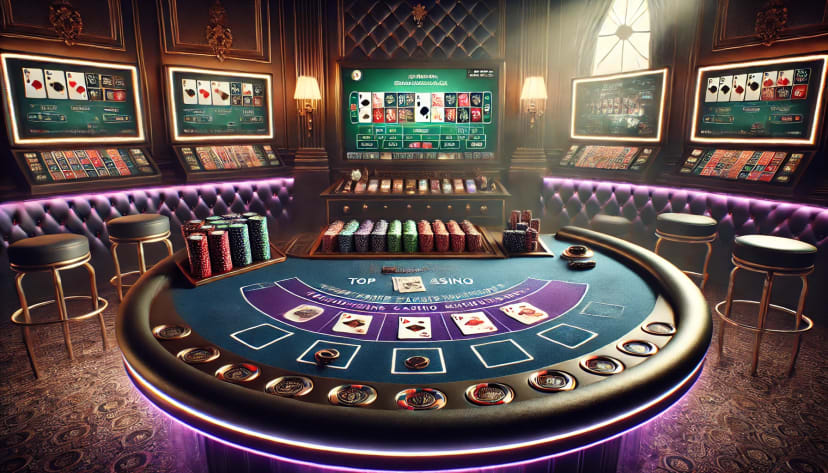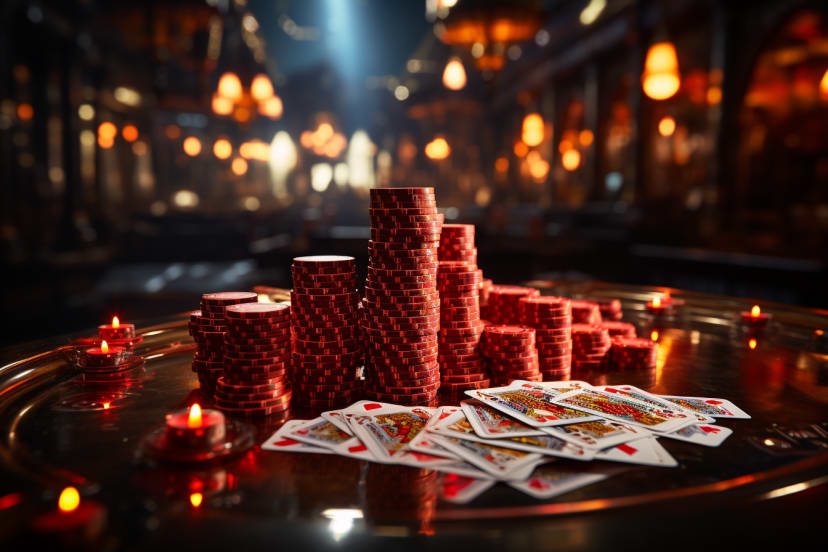Blackjack Hands: Best, Worst and What to Do

Blackjack is a cracking card game in online casinos across New Zealand and beyond. The aim is to beat the dealer by getting a hand total of 21 or as close to it as possible without going bust. Knowing which hands to play can seriously make or break your game. This guide will give you the lowdown on the best and worst starting hands in blackjack, covering strategies, odds, and charts to help you make smarter moves at the virtual tables.
Understanding Blackjack Hands in New Zealand
Your blackjack hand is made up of two or more cards, each with a point value. Aces can be tricky, worth either 1 or 11 points. Face cards – Kings, Queens, and Jacks – all clock in at 10 points. The rest are worth their face value. The absolute top hand? That's a 'natural blackjack' – an Ace paired with a 10-point card, hitting exactly 21. Sweet!
The number of possible two-card hands can vary depending largely on how many decks the casino is using. For a single deck, there are 1,326 combinations. But if you're playing with six decks, as many online casinos in New Zealand do, that number balloons to over 4 million possibilities. It's a lot to keep track of!
What Are the Best Blackjack Hands to Get?
The golden hands in blackjack are those with a strong chance of hitting 21 or getting really close, giving you the best shot at outsmarting the dealer. As mentioned, the ultimate hand is the natural blackjack (Ace and a 10-point card). This usually pays out better, often at 3:2 odds, making it a real game-changer.
Other hands to feel good about include pairs of Aces or Eights. These are prime candidates for splitting, allowing you to play two separate hands, which can significantly boost your odds. A 'soft 18' (an Ace and a Seven) is also a handy total, as you can usually hit for another card without the risk of busting.
Which Are the Worst Starting Hands in Blackjack?
On the flip side, the hands you'd prefer to avoid are those with a high risk of busting (going over 21). The classic nightmare hand is a hard 16 (like a Ten and a Six). Hitting this means you're practically begging to bust unless you draw an Ace or a 2.
Other weak blackjack hands include a hard 12 or 13, which should be hit if the dealer's upcard is 7 or higher. A hard 15 or 16 should also be hit if the dealer's upcard is a 7 or higher.
What Percentage of Hands do you win in Blackjack?
The percentage of hands a player can win in blackjack depends on various factors, including the player's skill level, the casino's rules, and the number of decks used. On average, a skilled player can win around 48-49% of hands played.
Blackjack Hand Strategies
The best blackjack strategy to win at online casinos involves following a set of rules that players can use to make strategic decisions during the game. The basic blackjack strategy can help players maximize their chances of winning by advising them when to hit, stand, double down, or split based on their hand and the dealer's up card.
Hard hands
For hard hands, players should hit if their hand value is 8 or less, while they should double down if their hand value is 9-11, depending on the dealer's up card. If their hand value is 12-16, players should hit if the dealer's up card is 7 or higher; otherwise, they should stand. If their hand value is 17 or higher, players should always stand.
Soft hands
For soft hands, players should double down if their hand value is Ace-2 through Ace-7, depending on the dealer's up card. If their hand value is Ace-8 or Ace-9, players should always stand.
Pairs
For pairs, players should always split Aces and 8s, while never splitting 5s and 10s. Other pairs should be split based on the dealer's up card, with certain pairs being split only if the dealer's up card is within a specific range.
Surrender
Finally, players may surrender their hand in certain situations, forfeiting half of their bet but ending the hand. Surrender is advised in certain scenarios, such as when the player's hand value is 15-17 and the dealer's up card is high.
Multiple Hands in Blackjack
Online casinos offer players the opportunity to play multiple hands of blackjack simultaneously, increasing the number of hands played per hour. Players should be cautious when playing multiple hands, as it can increase their chances of losing. It is recommended that players stick to playing one or two hands at a time to maximize their chances of winning.
Conclusion about Blackjack Hands
Knowing the best and worst blackjack hands and when to hit, stand, split, or double down is essential for any player looking to increase their chances of winning. While luck plays a significant role in the game of blackjack, implementing the strategies outlined in this article can help players make more informed decisions at the tables.
Remember that playing blackjack, like any form of gambling, carries a risk, and players should never bet more than they can afford to lose. Online casinos provide players with a safe and convenient way to play blackjack, but it is essential to choose a good online casino with fair rules and regulations. Following the strategies outlined in this article and playing responsibly, players will be able to enjoy the excitement and thrill of blackjack while minimizing their losses.
FAQ
What is a blackjack hand?
A blackjack hand consists of two or more cards dealt by the dealer. Each card has a specific point value. The aim is to beat the dealer by having a hand that totals 21, or is closer to 21 than the dealer's, without going over. It's a classic Kiwi casino game!
What does "soft" mean in blackjack?
In blackjack, a "soft" hand includes an Ace, which can be counted as either 1 or 11 points, depending on what's best for the player. For instance, an Ace and a six can be a soft 17 or a hard 7, depending on your choice. It adds a bit of strategy to your game, eh?
Is there a hand that should never be split?
Generally, splitting Aces and Eights is a good move in blackjack. However, you should almost never split a pair of Fives. A pair of Fives gives you a total of 10, which is a strong starting point. Splitting them risks ending up with two weaker hands. Play it smart, Kiwi!
When is the best time to split a hand in blackjack?
In blackjack, splitting a hand is a strategy when you're dealt a pair of cards with the same value, like two 5s or two Queens. Whether to split depends on the dealer's face-up card and basic strategy. Splitting Aces is usually a good idea, while splitting 5s or 10s isn't recommended. Good luck, mate!
Here are some examples of when to split pairs based on the dealer's up card:
- Split a pair of 2s or 3s if the dealer's up card is 4 through 7.
- Split a pair of 4s if the dealer's up card is 5 or 6.
- Split a pair of 6s if the dealer's up card is 2 through 6.
- Split a pair of 7s if the dealer's up card is 2 through 7.
- Split a pair of 9s if the dealer's up card is 2 through 6 or 8 or 9.
Which is the most misplayed hand in blackjack?
Experts reckon the most misplayed hand in blackjack is a soft 18. Many players stand on a soft 18, which can be a mistake. You should usually hit a soft 18 if the dealer's upcard is 9, 10, or an Ace. Hitting increases your chances of improving your hand and beating the dealer. Give it a go, you might get lucky!















